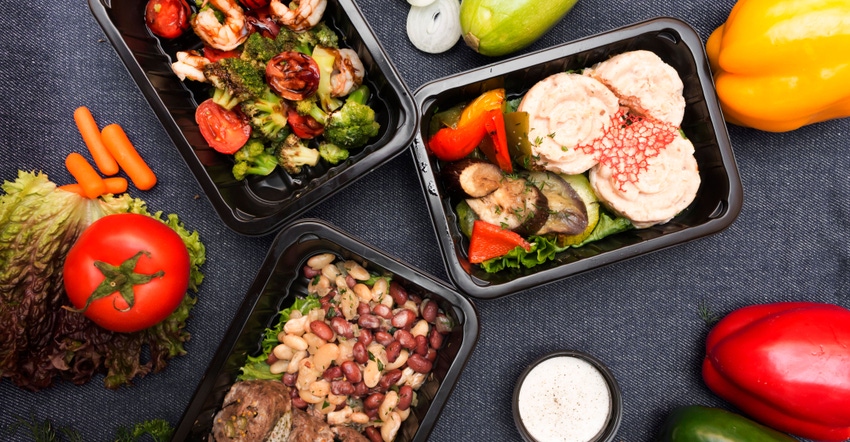As consumers take on specialty diets as a way to personalize their nutrition, brands offer the convenience of ready meals made specifically with these sometimes difficult-to-maintain lifestyles in mind.

Scan the aisles of any grocery store and it becomes clear that customization is king. Though simple fat-free or sugar-free alternatives used to suffice, food and beverage brands now need to truly personalize their offerings with customized foods appealing to a variety of diets and clean label attributes, from certified organic and non-GMO (genetically modified organisms) to gluten-free, paleo, vegan, Whole30, keto and more.
“The big headline is that the diet is gone,” said Rebecca Kvam, communications marketing manager at Lean Cuisine. “Instead of dieting, consumers are choosing foods that offer specific attributes.”
According to the “Food Formulation Trends: Ingredients Consumers Avoid, 2nd Edition” report from Packaged Facts, there are a variety of reasons why consumers seek out particular product attributes and alternative diet plans, ranging from a desire to avoid allergens, to prioritizing humanitarian and environmental efforts, to religious beliefs, to simply wanting to achieve better health through customized nutrition. Packaged Facts estimates that between 50 and 80 percent of American consumers fall into this last group, which includes vegetarians, vegans, people with high blood pressure who avoid salt, flexitarians, dieters avoiding fats and carbohydrates, and others. This last group is also perhaps the most influential today, as consumers overall have by and large shifted their nutrition goals from weight loss to achieving better overall health. In pursuit of this goal, consumers are personalizing their nutrition via alternative diets and looking for products that can help along the way.
Unfortunately, adhering to a specialized diet can be a lot of work for consumers who have to either search for “free from” varieties of their favorite products (in the case of a gluten-free diet), or adhere to a strict set of rules that is often at odds with the standard American diet (in the case of keto, paleo, Whole30 and others). And many consumers just don’t have the time.
According to the Hartman Group, busy young families are looking for options that help them get quick and easy meals on the table (in fact, 42 percent of parents rely on “meal helpers” like jarred sauce, rotisserie chicken, frozen and deveined shrimp, etc.), but also demand products that adhere to their personal health and wellness criteria.
Packaged goods brands as well as meal delivery services are responding to these demands by offering ready meals that are not just more convenient than from-scratch cooking, but also offer personalized attributes that fit into a range of specialty diets. And those that do it well are rewarded.
For proof of the increasing influence of specialization among ready meals, look no further than the resurgence of the frozen meal. In the United States, sales of frozen entrées have grown just about 6 percent in the 52 weeks ending July 15, 2018, according to SPINS. Those positioned as paleo have done a bit better, clocking in with about 7 percent growth. Vegan varieties, though they make up just US$200 million of the $19 billion frozen market, squash the competition when it comes to growth, posting nearly 20 percent growth over the past year and demonstrating an overall growing interest in frozen meals that offer a more personalized experience, rather than a one-size-fits-all one.
Globally, the same trends are transforming the ready meals market. While reduced fat meals struggled, dipping about 1 percent in retail value between 2016 and 2017, Euromonitor International reported gluten-free ready meals grew about 8 percent, meatless meals grew 4.6 percent, and reduced-salt meals grew 5.2 percent. Packaged Facts said well over half of all consumers make comparisons on salt content when making food purchasing decisions, and nearly two-thirds of consumers consider the salt contents of the packaged foods and beverages they buy.
Also making a mark on the personalized ready meal market are home delivery services like Sun Basket and Freshly, which offer a variety of diet-specific meal options ranging from more popular diets like vegetarian to more specialized ones like paleo. Services such as Keto Krate deliver compliant packaged snacks to a specific set of dieters, and those like PlateJoy offer customized meal plans (and an optional grocery delivery) based on the tastes, preferences and health goals of each consumer, garnered through an online lifestyle quiz.
For more on this topic, download Food Insider Journal’s 2018 Digital Magazine “Personalized ready meals: Where customization meets convenience”.
About the Author(s)
You May Also Like




.png?width=800&auto=webp&quality=80&disable=upscale)